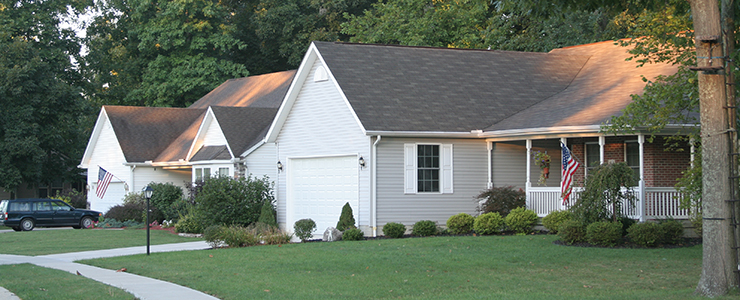Housing Resources
Renting a Home

Renting a home or an apartment is a common housing choice for many people. There are many styles of rental homes. Choice may include an apartment, condo, duplex, triplex, townhouse or single family house. A rental unit can be a studio (an apartment containing one main room) or it can contain one or more bedrooms and bathrooms in addition to a common living area. Rental homes vary in price based on many factors, including the number of bedrooms and bathrooms, the square footage, special features and where the unit is located. There are many rental homes that were created as “affordable housing” so that the rents would remain affordable over time.
Renting a home has many advantages. One advantage to renting is the flexibility it gives you to move as new opportunities arise. When you rent you are not responsible for repairs and providing for maintenance. However, when you rent your home you do not build up “equity” or value in your unit.
FINDING A RENTAL HOME
There are many ways to find a rental home. One way is to search online. Florida Housing Finance Corporation has created a website, FloridaHousingSearch.org, that allows the public to search for rental units that are considered affordable. In Florida there is a rental cap for listings, and the maximum allowed rental price cannot exceed 130% of the Fair Market Rents as determined by HUD. Click here to access a printable PDF handout that includes step-by-step instructions on how to conduct a housing search or call FloridaHousingSearch.org Toll-Free at 1-877-428-8844. Their bilingual call center is available to assist with housing searches Monday through Friday, from 9:00 am to 8:00 pm EST.
Another way to find a rental home is to work with a Realtor. You may already know someone who is a Realtor. To search for a Realtor in your area, visit the website of the National Association of Realtors. You can use their website to search for a Realtor that works in the area in which you want to live.
ROOMMATES
Some people prefer to share a home with a roommate. Roommates can help share housing costs and can make living arrangements more affordable. You may feel safer in your home if you are not living alone. Roommates can sometimes be part of your support network and with the right roommate, you have a friend in your home to share the ups and downs of daily life.
While you may benefit from these advantages to living with a roommate, you will be sharing common areas of the home, which requires compromise. You may in some arrangements be sharing a bedroom and so you will give up some privacy. For these reasons, finding the right roommate is important. When searching for a roommate, try to find out if your potential roommate shares common interests with you and is interested in the same shared living arrangements and type of housing.
There are many ways to search for a roommate. You can search for a roommate on your own or have someone, such as a Supported Living Coach, help you find a roommate. Sometimes you can find a roommate who already has a home with a room for rent. You can also find a roommate first and then together search for a home that is right for you both.
One way to help find a roommate is to review Roommate Matching Lists provided by your local Agency for Persons with Disabilities office. Click here to find an office near you.
RENTAL ASSISTANCE
Housing vouchers can help make a rental home more affordable by using a subsidy to cover the gap between the monthly rent and what a tenant can afford to pay per month.
SUPPORTED LIVING SERVICES
Supported living services are available to help individuals with disabilities who want to live in the community in a home of their own. A Supported Living Coach can help you find a rental home and negotiate the terms of a lease. The coach can also help you find a roommate and help you plan for your move. Click here to visit the ROOF Housing Resource Library for a handout on Supported Living Services offered by Agency for Persons with Disabilities.
